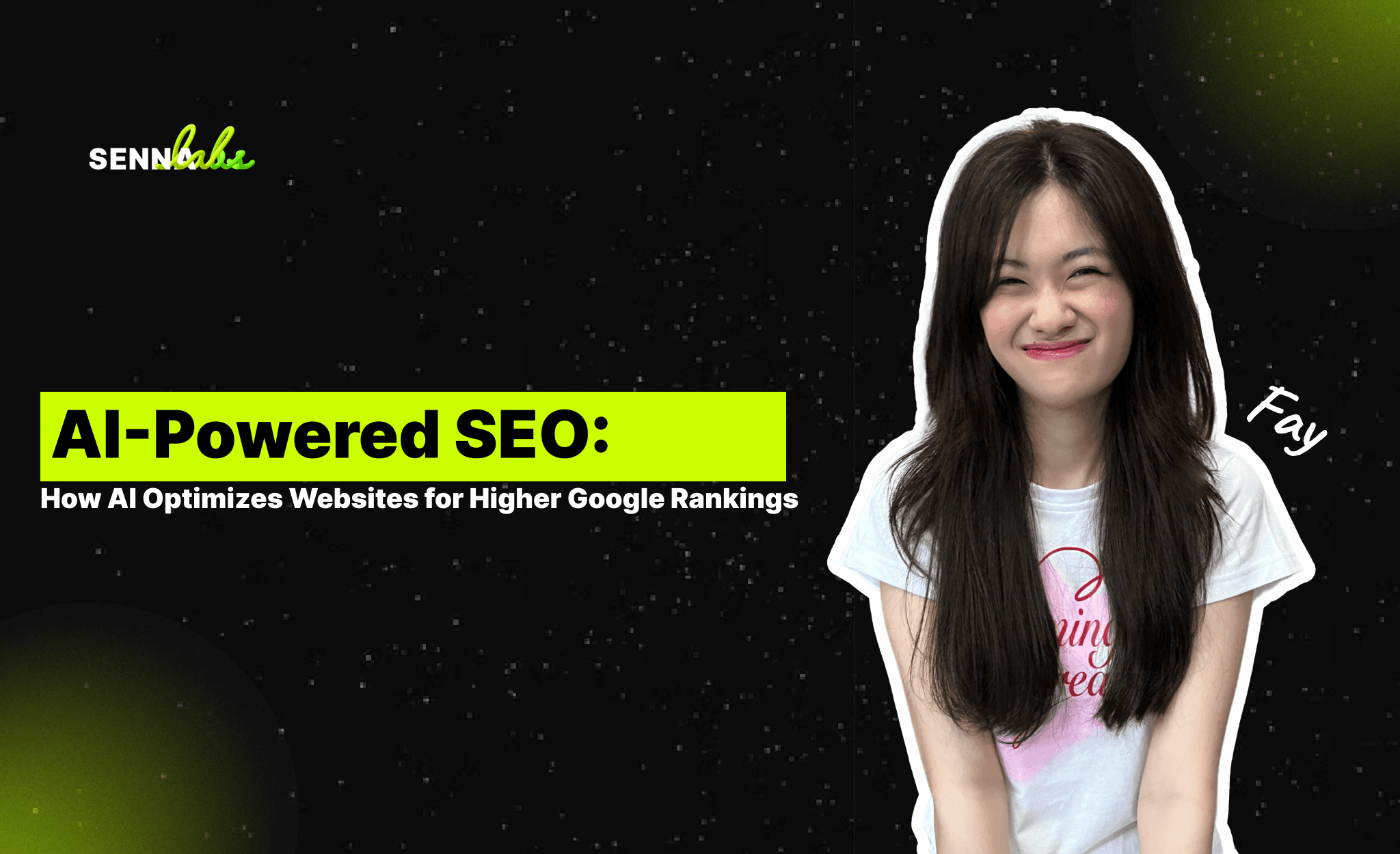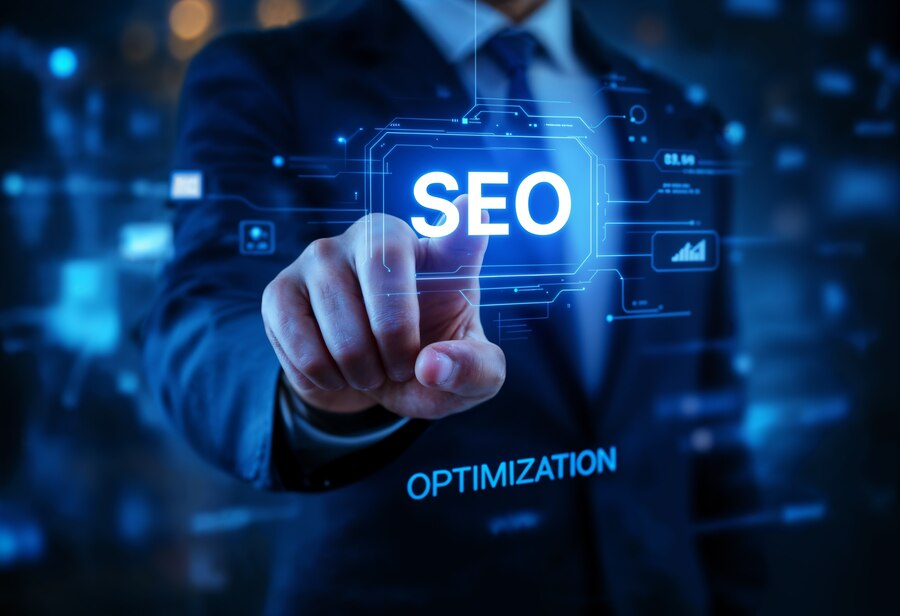AI-Powered SEO: How AI Optimizes Websites for Higher Google Rankings
Share

Search Engine Optimization (SEO) has evolved significantly over the years. Traditional SEO techniques rely heavily on manual keyword research, content optimization, and backlink strategies. However, as Google’s algorithms become more sophisticated, AI-powered SEO tools are helping businesses stay ahead by automating keyword analysis, content optimization, and real-time ranking tracking.
Kamalaya Wellness Retreat is an example of a business leveraging AI SEO tools to analyze high-ranking keywords, optimize content dynamically, and track ranking changes in real time. This approach has improved its organic search visibility, ensuring its website reaches a broader audience.
This article explores how AI is transforming SEO, the advantages of AI-driven SEO strategies, and how businesses can implement AI tools to enhance their search rankings.

How AI is Transforming SEO
AI is revolutionizing SEO by making it more data-driven, automated, and efficient. Instead of relying on static keyword research and manual optimizations, AI can:
-
Analyze large datasets to identify high-ranking keyword opportunities.
-
Continuously track search trends and user intent to optimize content dynamically.
-
Automate technical SEO improvements, such as site speed enhancements and structured data implementation.
AI Capabilities in SEO
-
AI-Powered Keyword Research – Finds the best-ranking keywords based on search intent.
-
Content Optimization – AI adjusts headings, meta descriptions, and internal links in real-time.
-
AI-Powered Rank Tracking – Monitors and predicts ranking changes dynamically.
-
Automated Technical SEO – Optimizes site speed, structured data, and mobile-friendliness.
AI-Powered SEO Strategies for Better Google Rankings
1) AI-Based Keyword Analysis and Topic Clustering
Traditional keyword research is time-consuming and often lacks real-time insights. AI-powered tools analyze millions of search queries and suggest:
-
High-performing long-tail keywords with low competition.
-
Topic clusters that help content rank for multiple related keywords.
-
User intent predictions to ensure content aligns with search queries.
AI SEO Tools:
-
Surfer SEO – Analyzes top-ranking pages and suggests keyword improvements.
-
Clearscope – Recommends related terms to increase content relevance.
2) AI-Driven Content Optimization
AI tools optimize website content dynamically based on:
-
Google’s evolving ranking algorithms.
-
User engagement metrics (bounce rate, dwell time).
-
Competitor content comparisons to suggest necessary adjustments.
AI SEO Tools:
-
Frase – Generates content briefs and optimizes existing articles.
-
MarketMuse – Uses AI to suggest content topics and gaps.
3) Real-Time Rank Tracking and Predictive Analytics
AI continuously monitors ranking fluctuations and identifies patterns, helping businesses:
-
Adapt to Google algorithm updates.
-
Predict ranking drops before they happen.
-
Improve underperforming pages with AI-driven recommendations.
AI SEO Tools:
-
SEMrush Position Tracking – Provides AI-powered ranking trend analysis.
-
Moz Pro – Uses machine learning to track keyword ranking shifts.
4) AI-Powered Technical SEO Optimization
Technical SEO issues, such as slow page speed, crawl errors, and schema markup, impact rankings. AI tools automatically:
-
Detect and fix broken links and duplicate content.
-
Optimize page load speeds using predictive caching.
-
Suggest structured data improvements for better search visibility.
AI SEO Tools:
-
Google PageSpeed Insights – Uses AI to recommend speed improvements.
-
Screaming Frog SEO Spider – Automates technical SEO audits.
Real Use Case: Kamalaya Wellness Retreat’s AI-Powered SEO Strategy
Challenges Before Using AI SEO
-
Identifying high-ranking keywords required extensive manual research.
-
Content updates were static, making it difficult to adapt to real-time search trends.
-
Tracking Google ranking fluctuations was slow and inefficient.
AI SEO Solutions Implemented
-
Automated Keyword Research – AI tools identified long-tail keywords that matched user search intent.
-
Dynamic Content Optimization – AI continuously adjusted meta tags, headings, and internal links based on ranking trends.
-
Real-Time Rank Monitoring – AI-powered rank tracking tools predicted ranking drops and suggested improvements.
Results
-
Organic traffic increased by 45% due to improved keyword targeting.
-
Bounce rate decreased by 30% as AI optimized on-page content.
-
Ranking volatility reduced, allowing the business to stay ahead of algorithm updates.
How Businesses Can Implement AI in Their SEO Strategy
Step 1: Use AI-Powered Keyword Research Tools
-
Identify high-ranking, low-competition keywords.
-
Cluster keywords based on search intent and user behavior.
-
Recommended tools: Ahrefs, SEMrush, Clearscope.
Step 2: Automate Content Optimization
-
AI should analyze competitor content and suggest better structures.
-
Use natural language processing (NLP) for readability improvements.
-
Recommended tools: Frase, MarketMuse, Surfer SEO.
Step 3: Implement AI-Driven Rank Tracking and Adjustments
-
AI should provide real-time updates on keyword performance.
-
Machine learning should predict ranking trends to avoid traffic drops.
-
Recommended tools: Moz Pro, SEMrush, Google Search Console.
Step 4: Optimize Technical SEO with AI
-
AI should scan for broken links, missing meta tags, and slow-loading pages.
-
Predictive AI caching should improve site speed and responsiveness.
-
Recommended tools: Google PageSpeed Insights, Screaming Frog SEO Spider, DeepCrawl.
The Future of AI in SEO
1) AI-Generated Content That Aligns with Google’s Search Intent
-
AI will create content that is more engaging and valuable, reducing human intervention.
2) AI-Powered Voice Search Optimization
-
SEO strategies will adapt to voice-based search queries and conversational AI models.
3) AI-Powered Predictive SEO
-
AI will analyze historical data to predict keyword trends before they peak.
4) AI-Enhanced Video SEO
-
AI will help transcribe, tag, and optimize video content for better rankings.
5) AI in Google’s Search Generative Experience (SGE)
-
AI-driven search results will require SEO strategies that focus on AI-generated answers and summaries.
Conclusion
AI-powered SEO is transforming the way websites rank on Google by automating keyword analysis, optimizing content dynamically, and tracking search trends in real time. Kamalaya Wellness Retreat’s use of AI SEO tools demonstrates how businesses can improve organic traffic, lower bounce rates, and stay ahead of Google’s ever-changing algorithms.

Share

Keep me postedto follow product news, latest in technology, solutions, and updates
Related articles
Explore all


